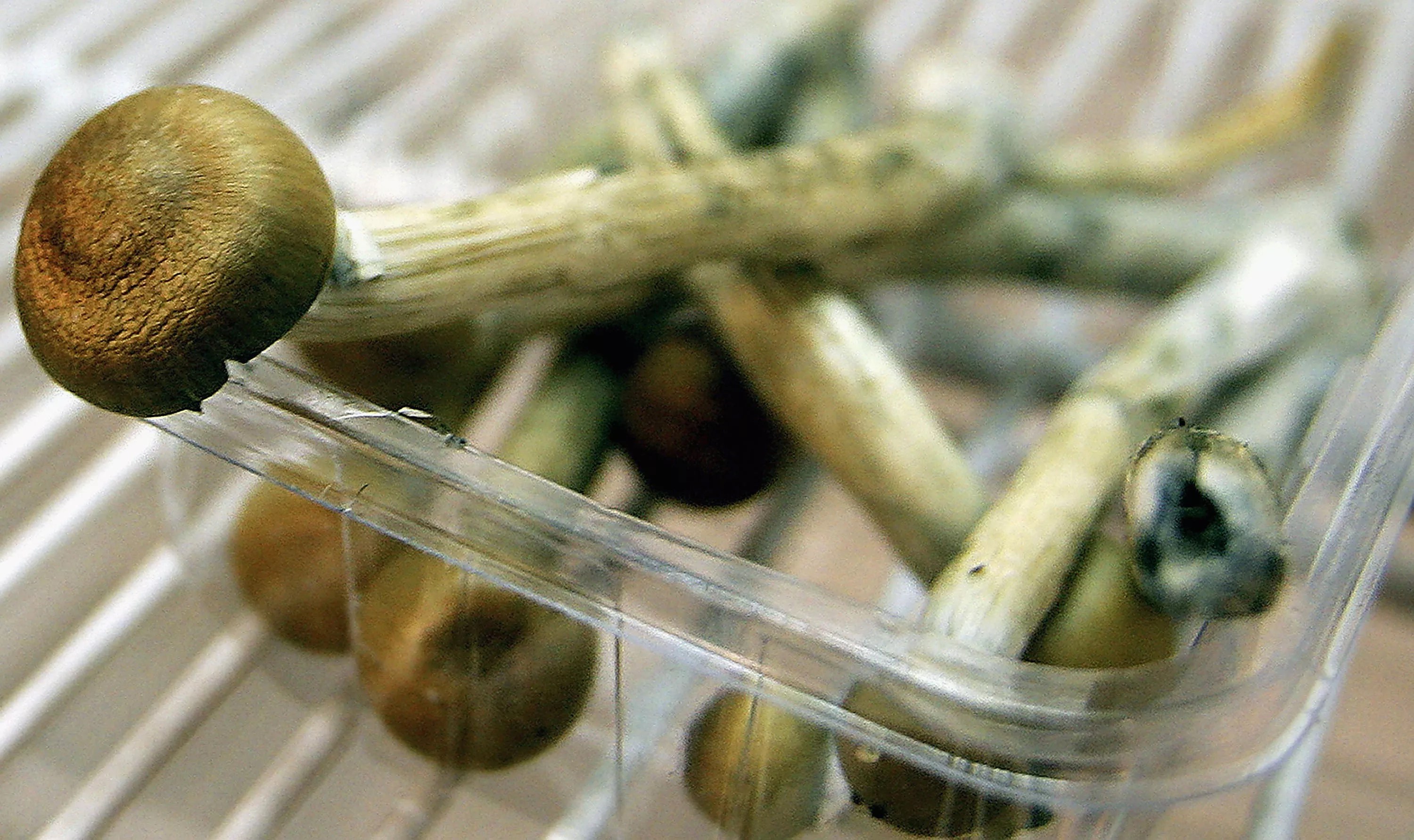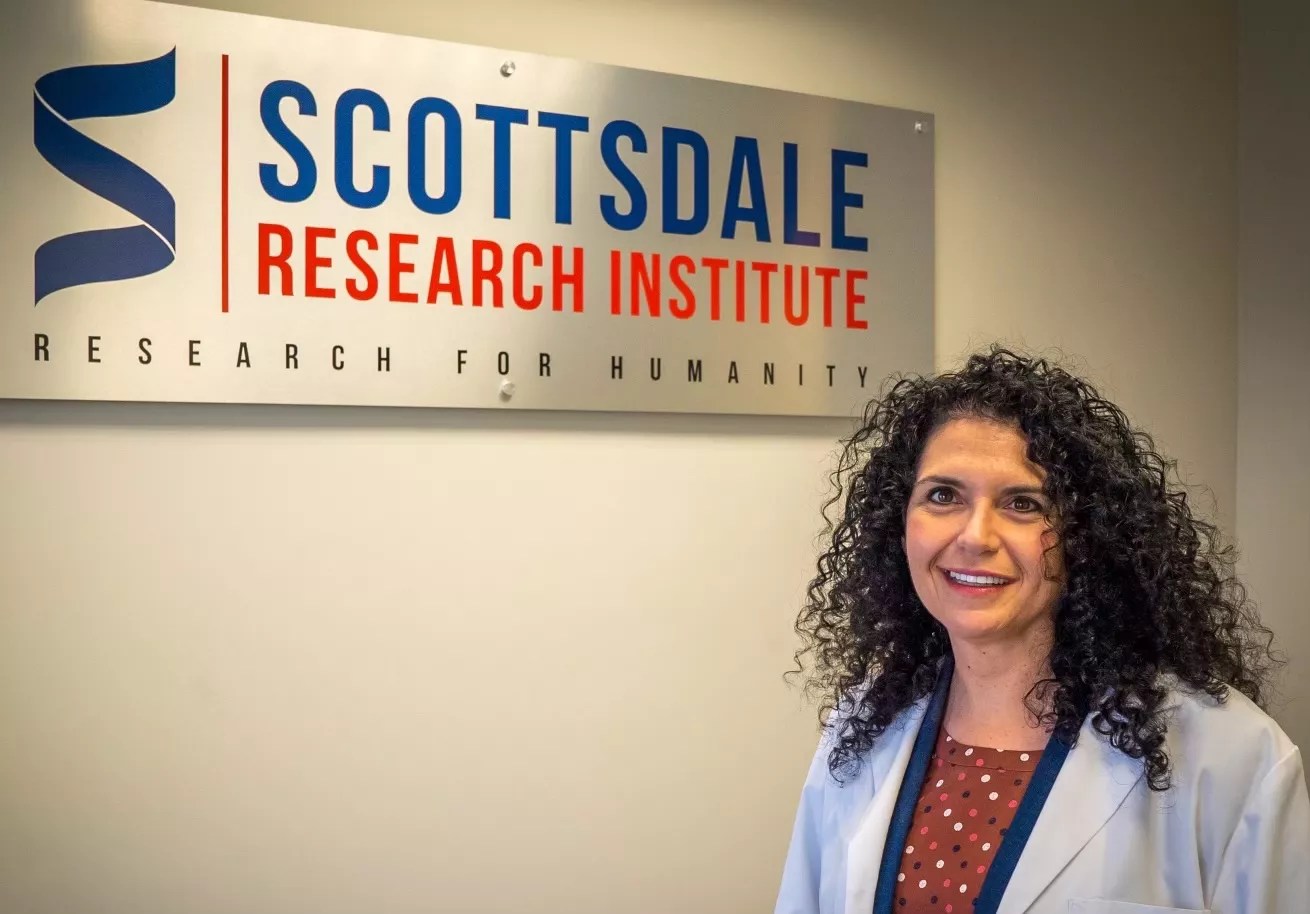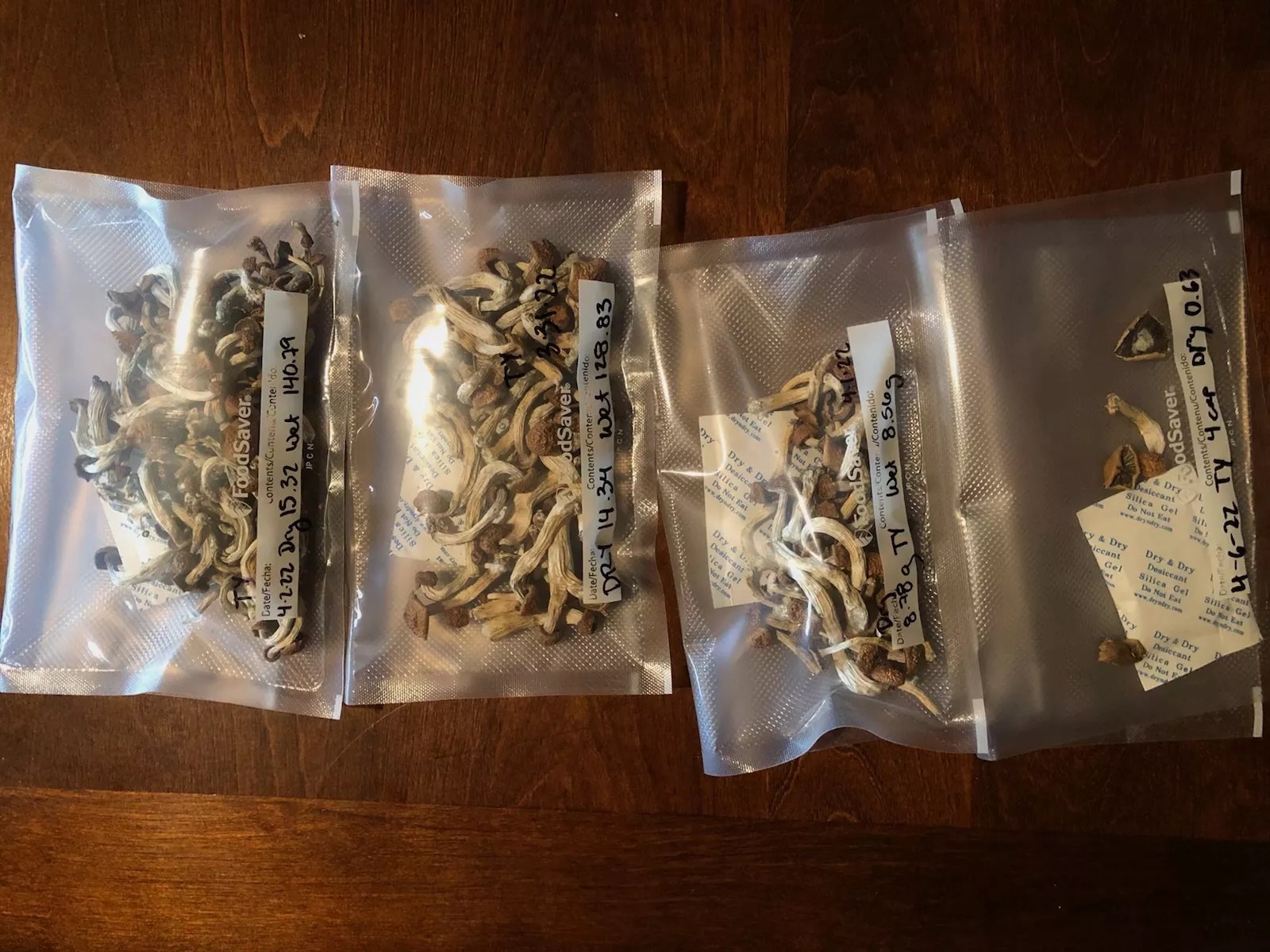
Daniel Berehulak / Getty Images

Audio By Carbonatix
With $5 million in funding, Arizona is on the cusp of becoming the first state to publicly fund research into magic mushrooms in the hopes of better understanding the medical benefits of natural psilocybin.
The funding and research is part of a growing nationwide move toward demystifying, studying and decriminalizing psychedelic drugs. In Arizona, the funding will help researchers gain a better understanding of natural psilocybin on post-traumatic stress disorder, chronic pain, long COVID-19, depression and other conditions.
Not only is Arizona the first state to publicly fund research into natural psilocybin, but the studies will be the first clinical trials on whole mushrooms, rather than synthetic or single-molecule psilocybin, to better mimic what people actually ingest, experts said.
“There’s never been a single controlled study on the planet looking at whole mushrooms, which is what people are taking day-to-day,” said Sue Sisley, a doctor and president of the nonprofit Field to Healed Foundation, which conducts studies on plant medicines and psychedelics. Its affiliate, Scottsdale Research Institute, holds a Drug Enforcement Administration license to grow magic mushrooms and cannabis and to produce LSD.
“This deserves to be studied in an objective and controlled environment so we can know more and know what is the potential” of natural psilocybin, Sisley said. “They’re getting some interesting, impressive results from the synthetic molecule, but people in real life are eating whole mushrooms and describing transformative experiences.”
Sisley helped draft legislation that would provide $30 million for natural psilocybin research. But HB 2486, a bipartisan effort sponsored by Rep. Kevin Payne, a Republican who represents portions of north Phoenix and Glendale, stalled in the House in January. So supporters of the research lobbied to include $5 million in funding in the state’s nearly $18 billion budget, which takes effect in July. That effort was successful.

Sue Sisley is president of the nonprofit Field to Healed Foundation, which conducts studies on plant medicines and psychedelics.
Field to Healed Foundation
Patients: Mushrooms help treat addiction, chronic pain
Interest in the substance has gained steam throughout academia, popular culture and legislation over the past 20 or so years. In 2000, the Johns Hopkins Center for Psychedelic and Consciousness Research began studying single-molecule psilocybin, and a milestone study there in 2006 helped kick off a global resurgence of research and interest.
Some 12 years ago, Sisley started researching how cannabis might help military veterans with pain and PTSD. She discovered that psilocybin helped patients in ways that weed didn’t because it gets at the root of the issue rather than simply treating the symptoms.
Although there’s no scientific proof yet, patient experience suggests that in addition to pain and PTSD, mushrooms help treat addiction, anxiety, eating disorders, long COVID and chronic pain.
“I think the big, untold story is about the anti-inflammatory capability,” Sisley said. “Inflammation is the pathogenesis of most conditions,” such as arthritis and migraines.
“Patients at the end of life need to have access to plant medicine and psychedelics to come closer to a good death. That’s part of my life’s work. I call it ‘psychedelic hospice,” she added.

Mushrooms are grown and dried at the Field to Healed laboratories.
Field to Healed Foundation
‘A stepping stone’ for legal psychedelics?
The funding in the state budget doesn’t legalize psilocybin mushrooms. But it does offer immunity for test subjects once research starts, according to attorney Jeff Toppel of Farhang & Medcoff.
“I do think this is a stepping stone for further either [decriminalization] or legalization of psychedelics for therapeutic use in Arizona,” Toppel said.
But, Toppel cautioned, “It’s not going to be like cannabis where you go to a dispensary and take it home.”
And it could be a long road before psilocybin is available at all, Sisley said. She noted that the $5 million in grants is only enough for two or three small phase-one studies, and it will probably be a couple of years until they’re underway. Scottsdale Research Institute plans to apply for a grant, which should be awarded in early 2024.
In the meantime, legal ketamine-assisted psychotherapy clinics offer similar treatment for many of the same conditions psilocybin seems to address. Chris Cohn, CEO and founder of Daytryp Health and Wellness in Phoenix, used to run a traditional recovery center but was disappointed in the low success rate.
After trying psilocybin therapy himself in Oregon, it helped with his depression. “I found it very profound. It helped me dramatically in terms of how I was feeling about myself,” Cohn said. “And I realized I wanted to be in the psychedelics business to offer these types of therapies to the masses.”
As with psilocybin, Cohn explained, the therapy is monitored. “The ketamine allows you to revisit the trauma in a peaceful and spiritual way. The medicine does the heavy lifting.” He added, “In one of your journeys you may witness the event that triggered the trauma for you and you’re able to wake up and talk about the trauma.”
Sisley said she hoped the studies funded by the grants will examine the whole treatment process.
“It’s not like mushrooms are the treatment. They just give people the capability to explore the problem for the first time,” she said.
“Neural connections in the brain become malleable after psilocybin,” Sisley added, and “can help reinforce a lot of revelations that occurred during the drug experiences and help people have an enduring effect that can last for years.”